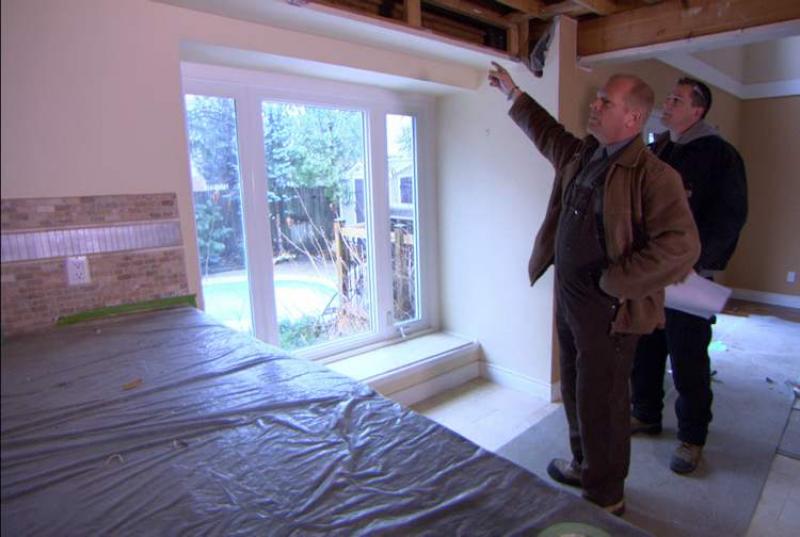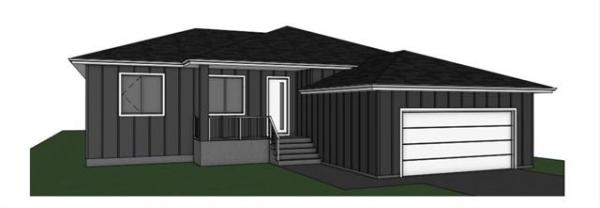As a contractor, I've built a few new houses and I've renovated many more. I can tell you there's a huge difference between building new and renovating -- and that is something you need to be aware of when you hire a contractor to do your renovation.
First, building new typically means building to minimum code. That's the standard for new construction and the standard building inspectors use to assess new-home construction. It doesn't mean building to maximize structural security, or energy efficiency, or sustainability.
Second, just because contractors know how to build new doesn't mean they'll know how to handle a renovation. Why not? Because, when you build new, you already know what you're getting; it's all laid out in the plans. You know what structures you're going to be building. You know if there's going to be HVAC, electrical or plumbing involved and where it needs to go. Sure, you may be faced with some challenges the architect didn't anticipate, but it's never the same as it is for renovators, because they never know what's behind the walls.
Building new is more straightforward. Renovating is more challenging -- and I, personally, love it, because I enjoy challenges. When renovating, you have to have foresight and you have to anticipate potential problems. You need to see ahead, so you know how to approach certain situations.
Let me give you a scenario. Someone says, "I want to take a wall down." The first thing I'm thinking is: Is it a load-bearing wall? And two, is there ductwork in it? In most cases, I can tell if it's a load-bearing wall just by looking at the house. And I also know that, more than likely, I can check downstairs to see if there's ductwork going through it or if there's electrical or plumbing. But I've been doing renovations for over 20 years; I've seen many different types of houses, built in a variety of styles and using different materials and building methods. A lot of contractors out there haven't -- and a lot of those contractors have only worked on new construction.
Contractors who know what they're doing would ask (and this is before even touching the wall): Can you take the wall down? What is it supporting? Do you need an engineer? What permits do you need? When do you need a permit? There are so many questions I can ask that most people -- including so-called contractors -- don't think of, because they don't have the experience in renovating. They aren't able to anticipate problems behind the walls.
As new builders, they know how to stud. They know how to drywall. They know how to plaster. They know how to paint. And many of them do it very well; it's excellent, professional work. But in a renovation, my question is: Was it done right? Maybe.
Most home renovations are superficial; they're improvements on finishes. They're cover-ups -- drywall with paint on it, or new hardwood flooring or kitchen cupboards. When I call them cover-ups, that doesn't mean they're all wrong, but it does mean a lot of things that should have been addressed behind the walls were more than likely overlooked by inexperienced workers and contractors who weren't even aware there might be something going on back there. (And then there are the deliberate cover-ups, but that's another story.)
How you renovate a 20-year-old home will be different from how you renovate a home that is 60 years old. Even a job as simple as laying hardwood floor or patching a wall is a challenge when you're dealing with old construction in a renovation. You need to know the kinds of issues you'll be facing with different age groups of homes and what you need to do to make the old work with the new. That's the kind of knowledge only experience brings.
Everyone wants a renovation. You drive on every street and you can see construction trucks, scaffolds, ladders and roofers. Everyone's jumping in. But were they properly trained? Who trained them? Did they care about the job? Or did they just jump on the bandwagon to make money because the boom is there?
I always ask, "Do you want your hamburger cooked by a guy who doesn't really care about his job, or by someone who loves what he's doing?" Because I know the second the guy cares enough to do it right. I believe in learning on the job. I believe in apprenticeship. But let's be sure the training is good and delivered by a tradesperson who cares about what he does.
Is there a course you can learn in school on renovating? Unfortunately, not really. You don't learn how to renovate by learning how to build new. Can you learn certain things? Yes; many excellent programs are taught in colleges across the country, teaching the basics of the building industry, as well as different trends in building materials, plumbing, electrical, architecture, etc., and their impact on a renovation today.
And a lot of new contractors get their start working in new construction. That's where they get the hours of training and experience that hone their skills.
With renovating, you also learn by doing. You have to work through a variety of renovation jobs to start to develop the problem-solving ability you need to do the job. And that takes a long time.
The problem is, someone's got to be first. Do you want to be the homeowner on a contractor's first renovation?
-- Postmedia News
Catch Mike in his new series, Holmes Inspection, airing Thursdays at 8 p.m. ET/PT on HGTV. For more information, visit www.hgtv.ca. For more information on home renovations, visit makeitright.ca




